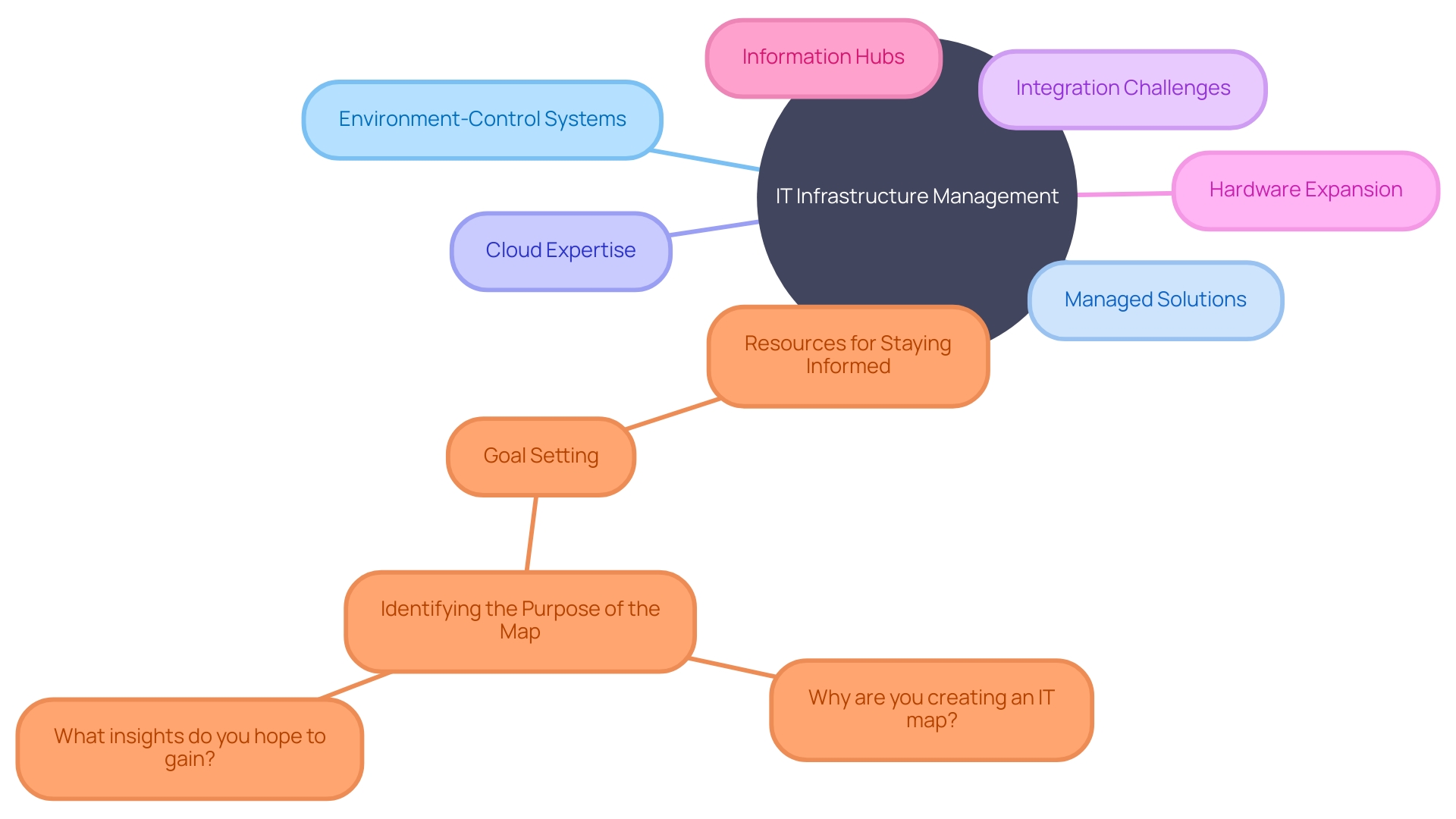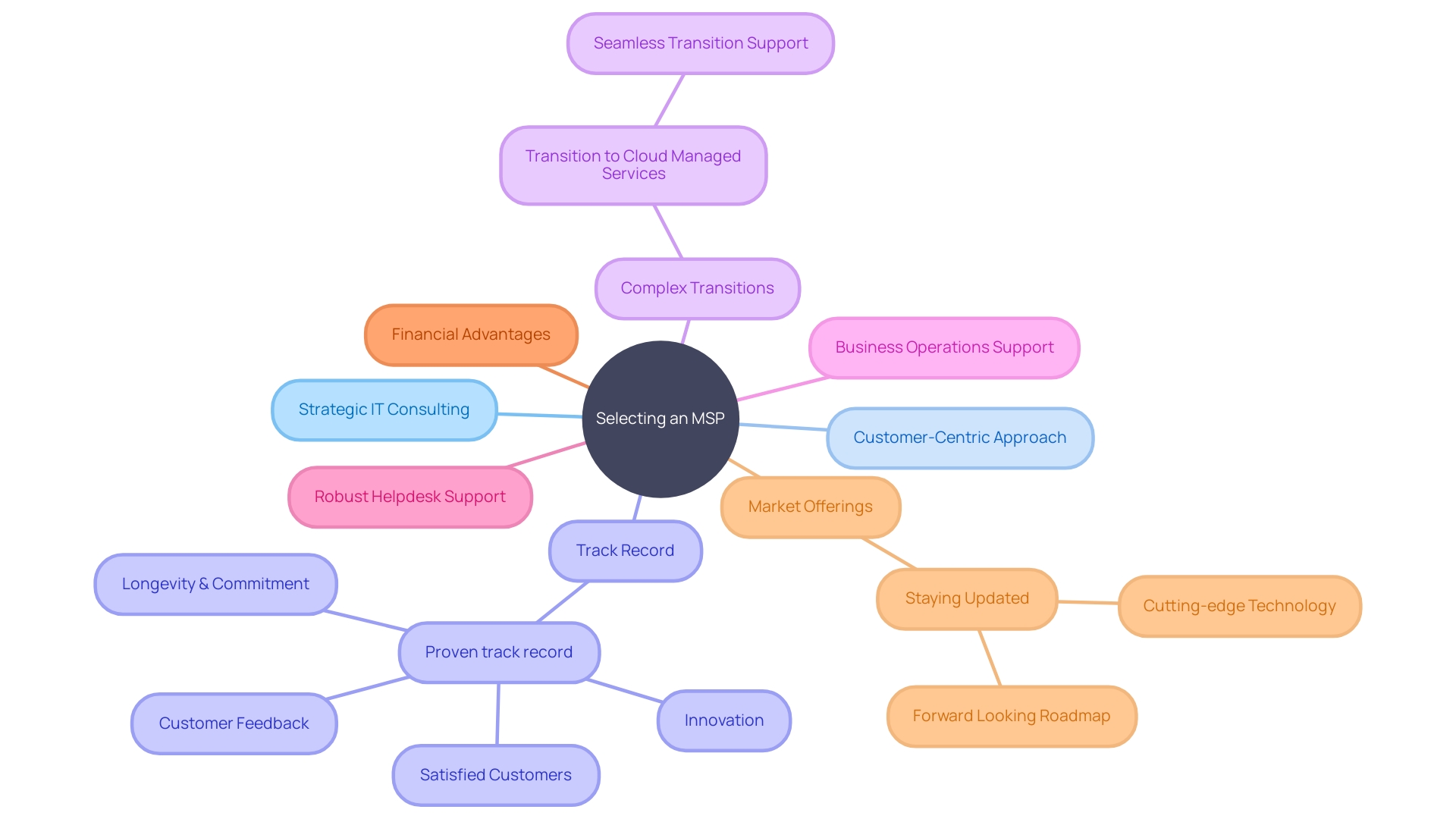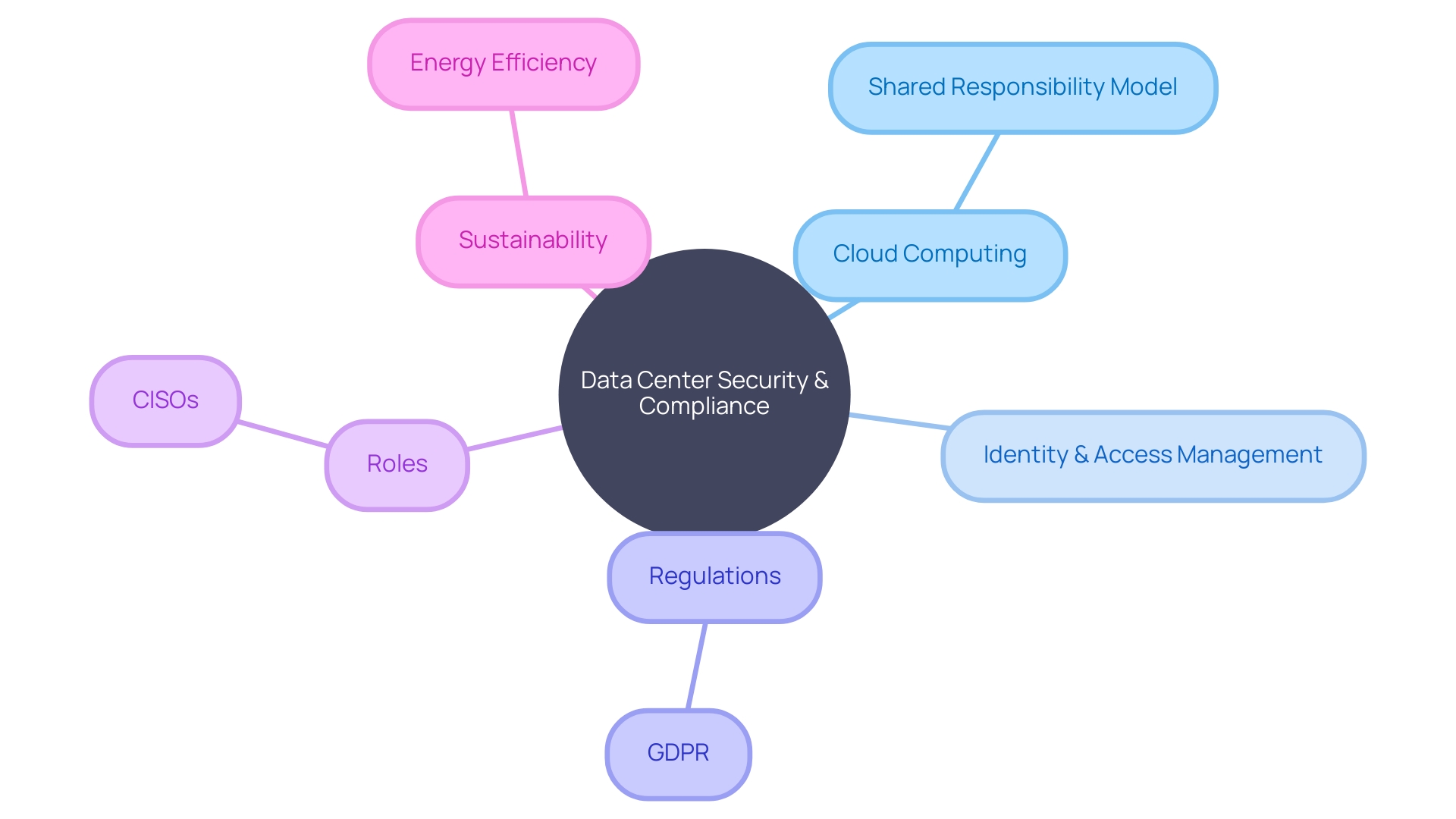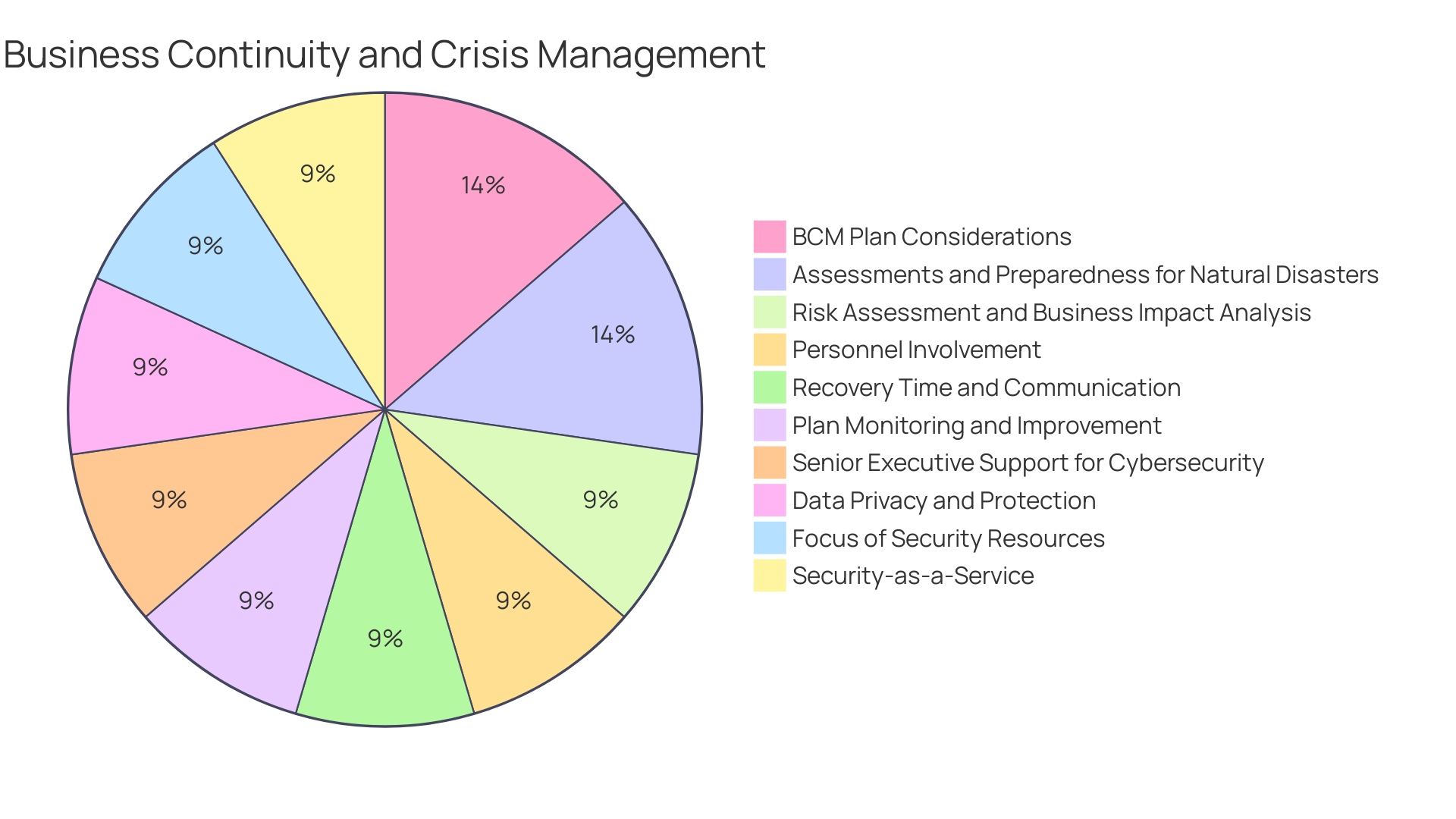Introduction
Data Center Managed Services play a crucial role in the smooth and efficient functioning of an organization's IT infrastructure. These services encompass a wide range of solutions aimed at enhancing performance, efficiency, and security within data centers. Managed Service Providers (MSPs) deliver these specialized services to ensure the seamless operation of critical components such as routers, servers, firewalls, and storage systems.
With the rapid evolution of technology and the growing complexity of digital infrastructure, the demand for data center services is on the rise. Organizations are recognizing the strategic value of managed services in navigating the complexities of modern IT demands while ensuring operational continuity, security, and technological advancement. In this article, we explore the different types of Data Center Managed Services, key components of these services, their benefits, and how to choose the right Managed Service Provider.
We also delve into the transition to managed data center services, security and compliance in managed data centers, infrastructure management services, monitoring and performance optimization, cloud services integration, and disaster recovery and backup services. By understanding the importance of Data Center Managed Services and how they can enhance the performance and security of data centers, organizations can stay ahead in the dynamic landscape of digital transformation.
What are Data Center Managed Services?
Data Center Managed Services are integral to the operational excellence of any enterprise's IT infrastructure. These offerings cover a wide range of solutions designed to improve the effectiveness, productivity, and protection of information facilities. Managed Service Providers (MSPs) provide these specialized services to ensure the smooth operation of the crucial elements within a facility, such as routers, switches, servers, firewalls, and storage systems.
The scenery of IT and information management is quickly changing with the emergence of augmented intelligence (AI) and advanced analytics. These technological advancements require a strong framework within facilities to handle the complex requirements of high-volume processing and storage. The collaboration between AI-driven analytics and managed solutions can significantly streamline operations, enhance security measures, and uphold compliance protocols, thus reducing potential performance deficits.
Furthermore, the increasing intricacy of digital infrastructure, as demonstrated by Equinix's remarkable network of 264 facilities spanning 33 nations, supports the crucial importance of these managed solutions. Data facilities are no longer mere repositories of information but are pivotal in facilitating a vast array of transactions and digital interactions that fuel our modern economy.
The increase in demand for services related to information storage has been evident. For example, Chess.com, serving more than ten million daily chess games and a community of over 150 million users, highlights the enormous magnitude of digital involvement that information facilities endorse. James Kelty, Head of Infrastructure at Chess.com, emphasizes the importance of a stable and scalable IT infrastructure to deliver a seamless digital chess experience to a global audience.
In the context of scalability and efficiency, the acquisition of Juniper by HPE is a notable development that highlights the ongoing efforts to enhance hardware capabilities. Similarly, the release of new desktop chips that reduce dependency on remote AI services indicates a shift towards more localized and controlled information processing solutions.
As the field advances, the power dynamics of information hubs become more and more critical. With the rising costs of energy, the focus is on improving the efficiency of buildings to prevent data centers from becoming 'stranded assets' due to their energy-intensive nature.
In summary, Data Center Managed Services are not merely a support mechanism but a strategic asset for organizations, enabling them to navigate the complexities of modern IT demands while ensuring operational continuity, security, and technological advancement.
Types of Data Center Managed Services
Enterprise IT infrastructures, which are vital for organizations, serve as the foundation for almost all compute, storage, networking, and business applications. The elements of these facilities, including environment-control systems and IT infrastructure, are crucial in guaranteeing the uninterrupted functioning and availability of vital services and information. When organizations seek to improve their data center management, they frequently rely on managed solutions for assistance.
Managed solutions encompass a wide array of options tailored to meet specific organizational needs. For example, Chess.com, with its mission to serve and nurture the growth of chess globally, has integrated a robust IT infrastructure to manage over ten million games daily for its 150-million-strong user base. Similarly, IFCO sought a partner like Rackspace Technology to leverage its cloud expertise and ensure smooth operations for its small IT team.
In the academic and healthcare domains, UHealth encountered the challenge of integrating offerings between its academic and healthcare systems. By transitioning to an independent ServiceNow environment, they achieved the differentiation and seamless operations required.
Furthermore, information hubs should not just be extremely useful but also adaptable and eco-friendly, as the sector moves towards constructing the information hubs of the future. For example, the purchase of Juniper by HPE indicates an expansion in hardware for the central processing unit, while the introduction of new desktop chips reduces dependence on remote artificial intelligence services.
In this ever-changing environment, organizations are intending to construct additional facilities, motivated by the increasing need for semiconductors, emerging technologies such as AI, and the crucial importance of energy management. The industry for storing and processing information is evolving, with scalability and efficiency as key considerations for the hardware, including cooling and power systems.
To stay informed on the latest in facility management and integration, industry professionals can turn to resources like Uptime Intelligence for data-driven analysis or The Cyber Express for up-to-date news in the information security sector. As technology hubs persist in supporting the digital economy, supervised solutions offer the knowledge and creativity needed to sustain peak efficiency and fulfill the increasing requirements of the sector.

Key Components of Data Center Managed Services
Enterprise facilities are the foundation of business operations, housing the vital components that support compute, information storage, network functions, and business applications. These facilities are not just physical spaces but ecosystems of technology that enable organizations to process and store vital services and information efficiently. At the heart of these computing facilities are routers, switches, servers, and firewalls, which collaborate to oversee and protect an organization's digital operations. The significance of a sturdy environment-control infrastructure cannot be emphasized enough; it ensures optimal conditions for IT hardware, preventing overheating and other environmental risks that could compromise integrity and availability.
Hyperconverged Infrastructure (HCI) has emerged as a transformative approach in facility management. HCI converges computing, storage, and network operations, traditionally siloed across different hardware systems, into a unified management platform. This integration simplifies operations, enhances scalability, and reduces the complexity associated with managing multiple vendors and systems. The flexibility and efficient administration of HCI make it a crucial element of contemporary facilities, adjusting to swift technological changes and intricate analytics demands.
In the midst of the changing environment of trends and challenges in these facilities, such as the growing need for services and security threats, it is essential to continuously enhance them. Organizations must take a proactive approach, consistently optimizing their facilities to ensure they are not only meeting current needs but are also prepared for future advancements and potential risks. The incorporation of cutting-edge analytics and enhanced intelligence (AI) into operations at the facility can result in notable improvements in performance while dealing with conformity and safety issues.
Furthermore, the expandability of equipment in the facility, such as cooling, power, and protection systems, is becoming more and more crucial as new technologies influence industry discussions. Enterprises are introducing advancements, like fresh silicon chips, that decrease reliance on distant artificial intelligence support, indicating a move towards increasingly self-governing environments for information processing.
In summary, overseeing a facility for managing information is a intricate task that demands a meticulous equilibrium of technological integration, strategic planning, and continuous enhancement. To guarantee the continuous success and dependability of services, it requires a dedication to staying ahead of industry advancements and upholding transparency and trust with stakeholders.
Benefits of Data Center Managed Services
Data Center Managed Services are key to streamlining the complex operations of modern enterprises. They offer not only a consolidation of essential IT infrastructure but also the expertise and tailored solutions that cater to specific organizational needs. For instance, IFCO's partnership with Rackspace Technology exemplifies the significant advantage of relying on seasoned professionals. Leveraging Rackspace's extensive experience, IFCO could enhance their cloud capabilities, despite having a compact IT team, thus focusing their resources on core business activities. Similarly, Chess.com, with its mission to serve a global community of chess enthusiasts, underscores the importance of a robust IT infrastructure managed by experts, enabling them to deliver seamless experiences to millions daily without worrying about the underlying technology.
Moreover, with the rapid evolution of storage technologies and growing demands, it's crucial for organizations to adopt scalable solutions. Recent industry shifts, such as HPE's acquisition of Juniper and the unveiling of new desktop chips, underline the ongoing transformation towards more efficient and self-reliant center environments. Managed solutions act as a buffer during such transitions, ensuring uninterrupted operations while internal teams adapt to new technologies.
Managed Data Center Services also provide financial prudence and transparency, which builds trust with stakeholders. Organizations such as ABSYZ prove that investing in insights derived from information can result in efficient decision-making, strengthening the need for managed solutions that can gather and analyze intricate sets of information.
The surge in internet usage and digital provision throughout the globe has generated immense data traffic, calling for reliable and continuous digital delivery. Managed solutions address the deficiencies in digital infrastructure, particularly in areas with restricted access, by providing consistent and high-quality support. The transition from self-managed servers to managed solutions, as observed with Ceeblue's customer case, often leads to overwhelmingly positive outcomes, advocating for the managed services model.
In conclusion, Data Center Managed Services are an indispensable resource for organizations aiming to maintain a competitive edge, ensuring operational excellence while navigating the dynamic landscape of digital transformation.
Choosing the Right Managed Service Provider
Selecting a Managed Service Provider (MSP) for Data Center Managed Services is a pivotal decision for any organization aiming to optimize its IT operations. 'Strategic IT consulting should be at the forefront of offerings provided by your MSP, ensuring your long-term IT trajectory aligns with your business objectives.'. Look for an MSP that presents not just technical expertise but a customer-centric approach, as noted in a successful partnership where '[Rackspace Technology's] capabilities of their people and their emphasis on the customer' were decisive factors.
Discovering an MSP with a track record of navigating complex transitions, such as Optimum's role in migrating UHealth to an independent ServiceNow environment, is vital. This demonstrates the provider's ability to handle intricate integrations across different domains, a testament to their operational adeptness.
Moreover, consider the MSP's ability to support and enhance your business operations. Chess.com's experience with an MSP that facilitated their growth and global community engagement underscores the importance of selecting a provider that understands and supports your mission.
In addition, ensure that the MSP offers robust helpdesk support to address everyday IT issues swiftly, maintaining business continuity. Additionally, assess the possible financial advantages; managed solutions can lower expenses by removing the requirement for specialized IT personnel, training, and benefits.
Finally, keep yourself updated on the newest offerings in the market, like free trials that enable you to evaluate an MSP's offerings without commitment. Such opportunities are demonstrated by the recent promotion of Remote Incident Manager, which may offer a glimpse into the provider's capabilities and quality of customer support.
When choosing an MSP, delve into their history of client success, breadth of support, strategic insight, and cost efficiency to ensure a partnership that propels your organization forward.

Transitioning to Managed Data Center Services
When considering a transition to managed data center solutions, it is crucial to navigate the process with careful planning. Organizations like IFCO have utilized the expertise of partners such as Rackspace Technology to facilitate their transition into cloud-based services, highlighting the value of a knowledgeable ally for companies with limited IT resources. Chess.com's commitment to providing a stable IT infrastructure for its global user base further exemplifies the importance of seamless integration across public cloud and on-premise solutions.
A comprehensive understanding of the current infrastructure is the cornerstone of a successful migration. This means a deep dive into the details of your physical and virtual devices, storage volumes, and databases. Moreover, pinpointing critical business applications is crucial for a secure and user-impact-minimized transition.
The recent advancements in the realm of information storage, such as HPE's acquisition of Juniper and breakthroughs in semiconductor technology, emphasize the significance of keeping up with trends in the industry. The rising energy costs and the need to prevent data centers from becoming 'stranded assets' due to their power-intensive nature require a rigorous analysis of operating costs and energy efficiency methods.
The Keysource’s State of the Industry Report 2023 reveals a pressing challenge: balancing speed, substance, and sustainability in project delivery. With 75% of professionals reporting quality issues due to accelerated project timelines, it's clear that meticulous planning cannot be compromised. The skills shortage only amplifies the need for expert guidance during this critical transition, ensuring that the move to managed services not only accelerates time-to-market but also aligns with sustainability goals and operational efficiency.
Security and Compliance in Managed Data Centers
Ensuring strong security and adherence in managed environments is crucial, particularly as organizations like Chess.com handle extensive amounts of sensitive information and a growing user base. With over ten million daily chess games, Chess.com's Head of Infrastructure, James Kelty, emphasizes the importance of a stable IT infrastructure that incorporates both cloud-based and on-premises solutions to deliver a seamless experience to users globally. Similarly, IHG Hotels & Resorts acknowledges the necessity of a managed software-defined wide area network (SD-WAN) solution to safeguard their systems against cyber threats. As the industry of storing and processing information continues to evolve with emerging technologies such as AI and the expansion of networking capabilities, as seen with HPE's acquisition of Juniper, it's clear that security and compliance remain at the forefront of priorities.
To maintain a secure and compliant data center, it is crucial to adhere to the shared responsibility model for cloud computing. This framework emphasizes that while providers of cloud computing offer foundational security measures, organizations must also take proactive steps to secure their cloud infrastructure, whether it's IaaS, PaaS, or SaaS. Understanding service provider documentation and best practices is essential for accountability and meeting security obligations. Furthermore, implementing secure identity and access management practices is essential to safeguard against breaches and unauthorized access.
The consequences of insufficient security in cloud computing are serious, with breaches presenting substantial risks to the operations and standing of organizations. The GDPR provides a regulatory framework that strengthens the significance of residency, minimization, and storage limitation to safeguard individual privacy rights within the European Economic Area. Gaining expertise in cloud information management is crucial for regulatory compliance, particularly with the changing environment of safeguarding laws.
In light of these challenges, CISOs play a critical role in orchestrating and executing information security programs. The growing complexity of maintaining consistent security across various products and repositories emphasizes the need for integrated solutions that offer visibility and governance throughout the lifecycle. With the emergence of generative AI technologies, there's an increased urgency to tackle privacy and security concerns.
In summary, as the sector progresses, the expandability of equipment for facilities, such as cooling, power, and protection, will continue to be important factors. Energy efficiency also emerges as a significant trend, with the World Economic Forum highlighting the economic benefits of building efficiency upgrades. Data facilities, therefore, must strategically manage their energy consumption to avoid becoming stranded assets and to mitigate the growing operational costs associated with energy usage.

Infrastructure Management Services
The crucial nerve hub of modern enterprises, where the vital operations such as housing routers, switches, servers, firewalls, and managing critical applications, along with information storage and processing, take place. To guarantee the smooth operation of a facility, management services for the underlying system infrastructure play a crucial part in supervising and optimizing these intricate systems. The comprehensive care of data center infrastructure encompasses not only the hardware aspects like server racks, blades, and storage devices but also extends to the meticulous control of environmental factors that can greatly influence the functionality and longevity of the technology housed within.
The effectiveness of infrastructure management has been exemplified by industry leaders such as Rackspace, who with their customer-centric approach and extensive expertise, have provided companies like IFCO with the support needed to navigate the complexities of cloud integration successfully. This is echoed by the experiences of companies like Ceeblue, which demonstrate the substantial benefits of transitioning to managed services for tasks like live-streaming, highlighting the value of specialized infrastructure management.
Furthermore, the significance of data facilities is emphasized by the growing emphasis on sustainability. The International Energy Agency states that facilities and networks for transmitting information account for approximately 1.5% of the total global electricity consumption. This figure rises significantly in data-intensive regions, prompting a critical evaluation of energy sources and the implementation of energy-efficient hardware and software. In this context, operators of computing facilities are encouraged to embrace a range of strategies to decrease emissions and improve sustainability, while also taking into account the financial consequences of such investments.
The continuous evolution of storage facility technology, with the introduction of new hardware such as server racks optimized for storage facility efficiency, and expanding industry networks as seen with HPE's strategic acquisition, all contribute to the dynamic landscape of infrastructure management in storage facilities. It is a field that not only supports the operational continuity of facilities but also adapts to the forward momentum of technological innovation and the shifting demands of global energy consumption.
Monitoring and Performance Optimization
Achieving optimal performance in facilities dedicated to information necessitates careful monitoring and performance enhancement. To sustain optimal operations, it is crucial to address the unique challenges presented by scale. As the complexity of software and hardware increases with services, hardware models, and various operating systems, optimization algorithms become indispensable. These algorithms are designed to navigate the constraints of time and computational resources, aiming to yield near-optimal solutions in scalable environments. The drive for efficiency in managing data center facilities is underscored by the economic benefits of improved building efficiency and the growing costs associated with energy consumption in data centers. Significantly, the worldwide market for information processing facilities, presently evaluated at roughly $250 billion, is expected to twofold within the following seven years, intensifying the significance of strategic capacity management.
Case studies from leading tech organizations demonstrate that innovations in Infrastructure as a Service (IaaS) and strategic planning can effectively address capacity challenges. For instance, IaaS models promote more efficient utilization of resources through shared capacity pools, allowing for more adaptable traffic distribution and management. This method is enhanced by efforts to improve the infrastructure of the facility, such as increasing the capacity of cooling, power, and protection equipment.
To stay abreast of the evolving landscape, industry advancements such as HPE's acquisition of Juniper and the introduction of new desktop chips are influencing the future of capabilities in the infrastructure. Meanwhile, the optimization of server rack sizes and the integration of AI technologies are contributing to enhanced efficiency of the facility. As businesses strategize for growth, with some aiming to establish multiple facilities by 2030, the emphasis remains on ensuring that these vital assets do not become isolated due to their power-intensive characteristics.
Considering these factors, a comprehensive approach to managing the data center must take into account the interplay between individuals, processes, and technology. The knowledge from industry experts and analysis driven by information such as Uptime Intelligence support the need for ongoing improvement of operations to align with the changing requirements of the digital economy.

Cloud Services Integration
Incorporating cloud solutions into an enterprise's data center is a transformative step towards achieving greater flexibility, scalability, and operational efficiency. It necessitates a strategic approach that encompasses the selection of appropriate online services, the alignment of IT infrastructure, and the establishment of a robust and secure network for seamless connectivity.
NVIDIA Inception is an outstanding program that speeds up startups by providing advanced technology and resources, emphasizing the significance of integrating state-of-the-art solutions to promote innovation. Similarly, companies like IFCO have utilized partnerships with experienced providers of cloud services such as Rackspace Technology to enhance their IT capabilities, underscoring the value of expert guidance in the process of integrating into the cloud.
As an example, the integration of cloud solutions by Chess.com has empowered the platform to handle over ten million daily chess games, showcasing the scalability that cloud integration can offer to manage vast quantities of data and user interactions. Their approach to maintaining a stable IT infrastructure through a combination of public computing networks, on-premises solutions, and crucial interconnections showcases the importance of strategic cloud integration for global reach and user satisfaction.
The role of the cloud in modern IT infrastructure cannot be overstated. By offering computing resources over the internet, cloud computing enables businesses to adjust resources as required, thereby maximizing IT efficiency and promoting business innovation. Moreover, the incorporation of the Internet of Things (IoT) with cloud-based solutions empowers the effective control of the information produced by interconnected devices, providing improved automation and decision-making abilities.
In order to fully exploit the potential of cloud services, it is crucial to comprehend the components of an enterprise data center, which include compute, storage, network, and business applications, along with the infrastructure for environmental control. An effective infrastructure for handling information not only meets operational needs but also enhances customer confidence and brand image.
When considering integration into the cloud, it is crucial to stay informed about industry trends, such as the increasing demand for semiconductors driven by emerging technologies like AI, and the need for efficient server rack sizes for optimal efficiency in information processing facilities. Additionally, energy considerations are paramount, as data centers must balance their power-intensive nature with the necessity of avoiding becoming 'stranded assets.'
In the end, the real worth of integration in the sky lies in the capability to utilize advanced technologies, including generative AI, to expand the worth of adopting the sky. By maximizing cloud ROI, organizations can plan and prioritize their migration journeys, ensuring they are well-positioned to take advantage of the scalability, flexibility, and cost-effectiveness that cloud computing offers.
Disaster Recovery and Backup Services
A comprehensive approach to information backup and recovery transcends the conventional notion of 'disaster'—which often conjures images of rare, catastrophic events like floods or earthquakes. In reality, most disruptions stem from commonplace yet critical issues such as hardware failures, power outages, or human error. Additionally, modern IT landscapes face escalated risks from both internal and external security threats. To combat this, reframing the challenge as 'IT Recovery' rather than 'disaster recovery' shifts the focus towards high-probability, high-impact scenarios that demand continuous management attention.
In the pursuit of optimal business continuity and safeguarding information, a thorough analysis is the starting point. This involves conducting a business impact analysis and risk assessment to determine the Recovery Time Objective (RTO) and Recovery Point Objective (RPO)—two pivotal metrics for any recovery strategy. A thorough analysis of the existing digital infrastructures, including hardware, software, information, and connectivity, will unveil the essential resources to recover vital business operations within a predetermined timeframe. Furthermore, constructing a dedicated disaster-recovery team is a strategic move to enhance organizational resilience.
Strategic backup and recovery efforts are essential for safeguarding enterprise information against a spectrum of potential losses, from technical malfunctions to security breaches. The process involves not just duplicating information but ensuring its secure storage and accessibility for restoration when required. Enterprises must navigate complex decisions about backup scheduling, media, and storage locations, considering the risk that both the original information and its backups could be compromised simultaneously.
The stakes are high, as information not only supports the operational integrity of an organization but also its financial well-being and reputation. Considerable resources are frequently redirected towards recovery efforts following an incident, emphasizing the significance of preemptive measures. Significantly, according to a Gartner study, by 2025, 30% of organizations will experience loss of information as a result of employee negligence. In light of increasing cybersecurity threats, IT and security teams are evolving rapidly to safeguard information assets, particularly in intricate environments like on-premises Exchange Server setups. The repercussions of data loss are multifaceted, impacting finances, operations, and organizational credibility in the marketplace.

Conclusion
In conclusion, Data Center Managed Services are essential for enhancing the performance, efficiency, and security of an organization's IT infrastructure. Managed Service Providers (MSPs) deliver specialized solutions to ensure the seamless functioning of critical components within data centers. With technology evolving rapidly and digital infrastructure becoming more complex, the demand for these services is increasing.
Different types of Data Center Managed Services cater to specific organizational needs, from infrastructure management to disaster recovery and backup services. These services enable organizations to navigate IT complexities, ensuring operational continuity, security, and technological advancement.
Choosing the right MSP is crucial. Look for an MSP that offers strategic IT consulting, technical expertise, and a customer-centric approach. Consider their track record, support capabilities, and cost efficiency when making a decision.
Security and compliance are paramount in managed data centers. Adhering to the cloud shared responsibility model, implementing secure cloud identity and access management practices, and staying updated with data protection laws are essential for robust security and regulatory compliance.
Infrastructure management services play a critical role in overseeing and fine-tuning data center systems. Sustainability and energy efficiency are important considerations as well.
Monitoring and performance optimization are key to achieving peak data center performance. Adopting optimization algorithms and staying informed about industry trends are necessary for efficient operations and addressing capacity challenges.
Cloud services integration offers flexibility, scalability, and operational efficiency. Selecting appropriate cloud services, aligning IT infrastructure, and establishing secure networks are crucial. Staying informed about industry trends and energy considerations maximizes the value of cloud integration.
Disaster recovery and backup services are vital for business continuity and data protection. Conducting a business impact analysis, constructing a dedicated recovery team, and implementing strategic backup and recovery efforts safeguard enterprise data.
By understanding the importance of Data Center Managed Services and making informed decisions when choosing an MSP, organizations can enhance their IT operations, ensure continuity, and stay ahead in the dynamic landscape of digital transformation.




